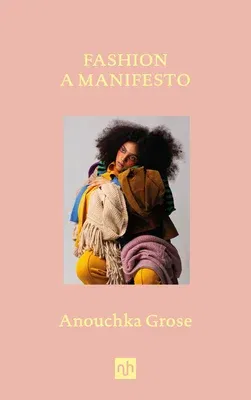With a critical eye trained on the capitalistic allure and
environmental impact of the fashion industry, this timely and stirringly
argued book puts forward a radical new approach to the way we represent
ourselves through our clothes.
Fashion: A Manifesto takes a look at the psychology of fashion in
order to unpick the hold it has on so many of us. On the one hand
clothes can supposedly help you out with embodied life by concealing the
bits you feel ashamed of and accentuating the bits you're proud of.
However, fashion isn't really about clothes in any practical sense, but
rather the endless replacement of clothes by other clothes, and
especially the vilification of certain styles and the extreme elevation
of others.
Like gambling, fashion is a system that keeps us captivated by treating
us badly, trapping us in a cycle of promises and dashed hopes by
suggesting that new clothes will help us to like ourselves more. And
while it's easy to dismiss fashion as elitist and wasteful, isn't
fashion also fascinating, exciting and perhaps sometimes even
radical--not to mention surprisingly egalitarian?
Rather than insisting we give up on the pleasures that clothes have to
offer, this brilliant new book by psychoanalyst and writer Anouchka
Grose puts forward a post-fashion logic that rejects the parade of
manufactured novelties in favor of more idiosyncratic forms of sartorial
imitation.
Taking us on a journey from the court of Louis XIV to TikTok's avant
apocalypse, Fashion: A Manifesto scrutinizes fashion from a number of
angles: historically, psychologically, politically, environmentally,
even linguistically, to open up questions about the ways in which it
works both for and against us and looks forward to a future where our
clothes treat us--not to mention the planet--a great deal more kindly.

